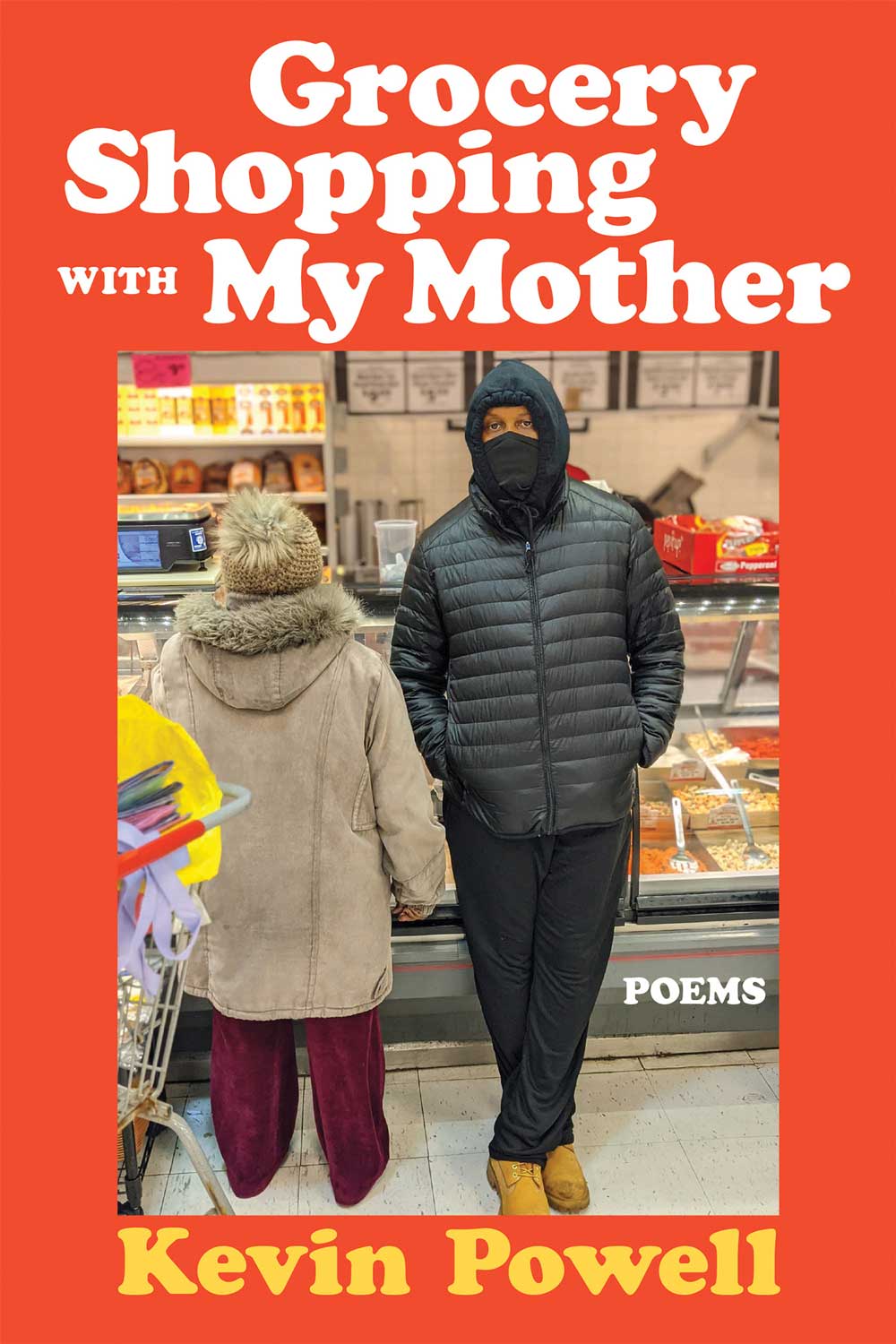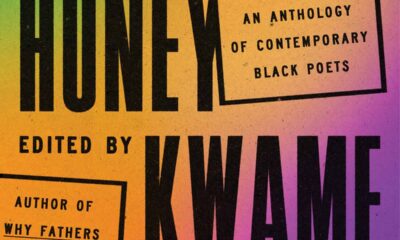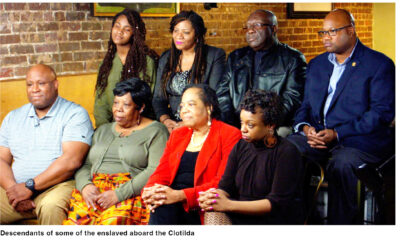Book Review
“Songs in the Key of Life”

Although Kevin Powell’s poetry collection, Grocery Shopping with My Mother: Poems, (Soft Skull, 2022), begins and ends with a tribute to his mother, the collection is a portrait of his mother who he visited weekly upon learning of her illness, reflections on life as a Black man in America, and tributes to musicians, writers, actors, performance artists, and icons in our society. As I read poems reflecting Powell’s interior monologues on love, grief, and death, his musings on cultural and activist icons, and his conflicted feelings about his mother, father, and childhood, I was reminded of Kwame Alexander’s recent book, Why Fathers Cry at Night: A Memoir in Love Poems, Recipes, Letters, and Remembrances (Little, Brown, and Company). Poets use language in creative ways to convey private observations which become meditations on the human experience. They capture our emotions and passion and examine the complex issues with which we grapple, thus causing us to think more deeply about our journey through life.
Inspired by Stevie Wonder’s classic album, Songs in the Key of Life, Powell has crafted Grocery Shopping with My Mother: Poems like an album, 16 pieces for Side 1; 16 pieces for Side 2, and 4 selected bonus tracks written between 1990 and 2008. He informs the reader that poetry is music and music is poetry to him. Using free verse, extended prose, haikus, and the language of ordinary speech, he provides us with a lens to examine the complicated world around us.
Powell opens the collection by describing the complexity of his relationship with his mother. His grocery shopping trips with his mother generate fears about her death, her sacrifices, her tough love, her failure to care for herself, and the cycle of abuse she endured while growing up. He states: “But she knew she was Celie before Celie was Celie in The Color Purple.” In his closing poem, “Son2Mother,” he underscores the paradox of their complicated relationship and in a letter writes: “Mother, have I told you, that you are the first woman I ever fell in love with, that what I’ve always wanted in life is to hear you say that you love me too?”
The poems in this collection also pay tribute to icons such as Sidney Poitier, Cicely Tyson, Maya Angelou, and Bob Marley. Poitier’s powerful statement “They call me Mister Tibbs” in the film, In the Heat of the Night, symbolizes his goals as an actor. In describing the goals of Poitier, Powell writes “ this is evidence of things not seen; that I was not your Negro, nor your Uncle Tom; they call me Mister Tibbs; I Sir Sidney Poitier; what kind of man was he; I am the me I choose to be.” In “For Cicely Tyson,” Powell writes: “Girls, Women, Black girls, Black women, especially rarely told they are smart, gifted, beautiful, special, dope, all in a single breath, But you are.” The poem “We Them People” recounts how “we are survivors of people who were free and became slaves of people who were slaves and became free; we know why the caged bird sings; we know what a redemption song brings; we them people; we are those people who shall never forget.”
Powell praises the renowned deejay, D-Nice. “They call him D-Nice, or call him a pure rebel, a radical thinker on a musical level; call him photographer savior.” In depicting cyphers, Powell’s colorful language evokes an image of “tight yoruba prayer circles” where “shorttallfatskinnydamaged bodies rhyme and shine the shoes of the blues, of palecoconutyellowredbrownjetblack boys who considered suicide when shadows became coalitions of the haves and the have nots.” In a tribute to Biggie Smalls, he references him as “the greatest storyteller never to win a Pulitzer.”
One of the most powerful poems, written in 2020, is “Enough.” “They shoot us in the back; They shoot us ‘cuz we Black; They shoot us in the bed; They even shoot us when we dead.”
“America,” written in November 2021, is a multilayered poem told from the perspective of a Black man who narrates the collective story of Blacks who have been sharecroppers, witnesses to the lynching and killing of Emmett Till, soldiers in Vietnam, and observers of the violence inflicted on Black men and children in the Age of Trump.
Like musicians, Powell provides readers with insights into what is seen and what is not seen as we engage in this experience called “life.” In the words of the poet Mahogany L. Browne, “These poems are a testament to the healing work of Kevin Powell, as they revel in the power of forgiveness, abundance, and lineage.”
Dr. Brenda M. Greene is a Professor of English and Founder and Executive Director of the Center for Black Literature at Medgar Evers College, CUNY.





